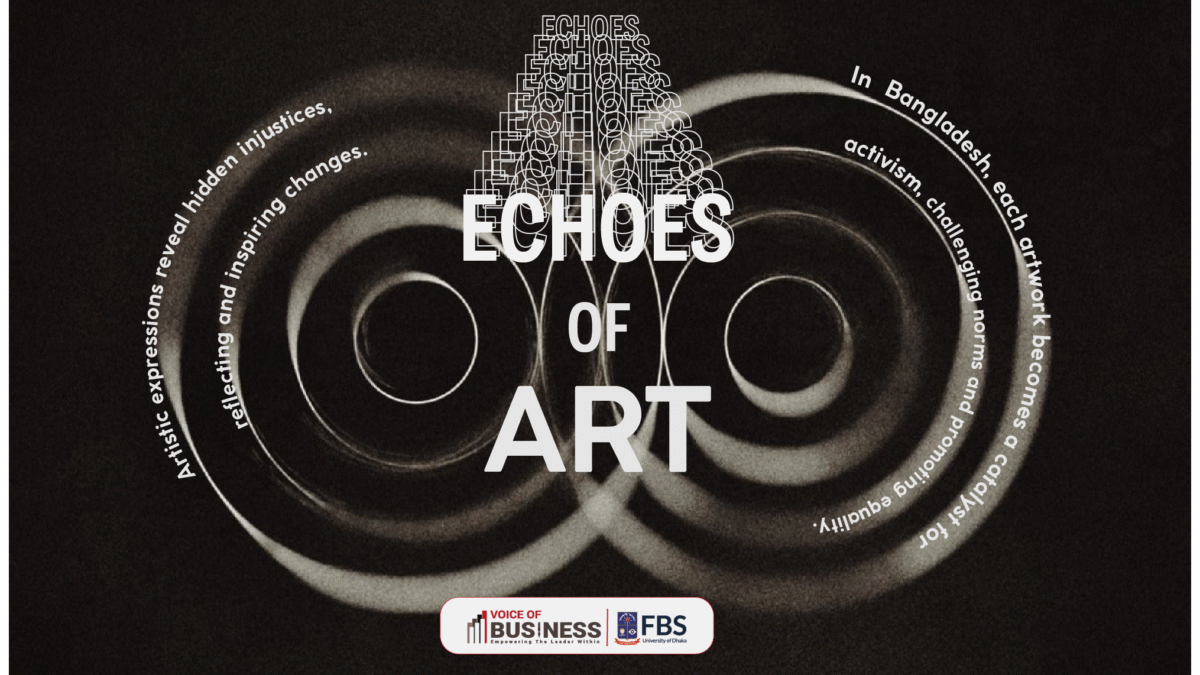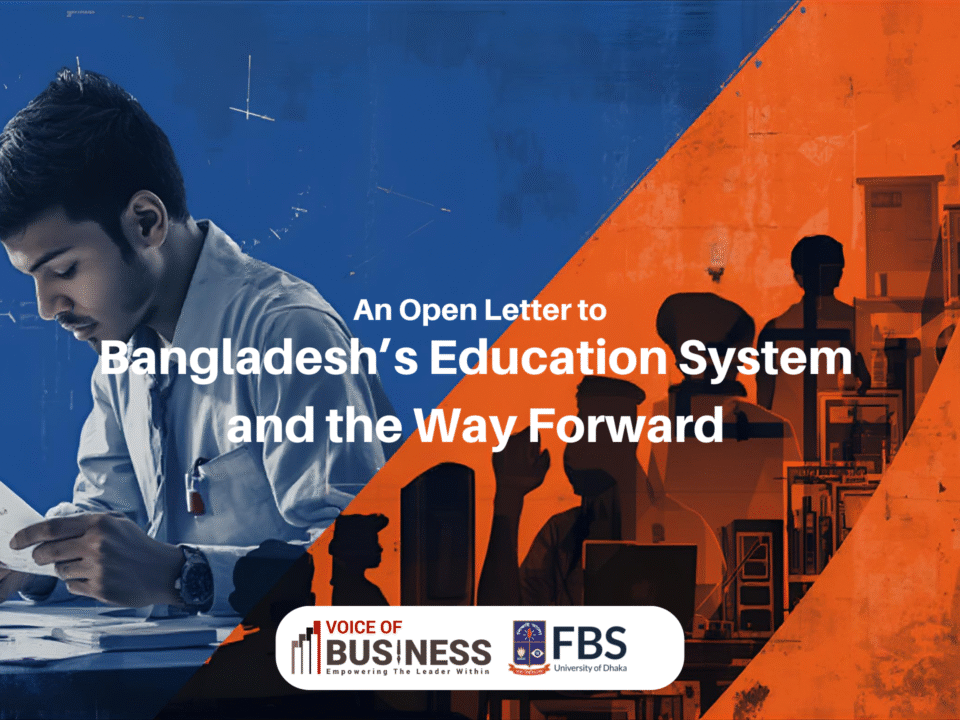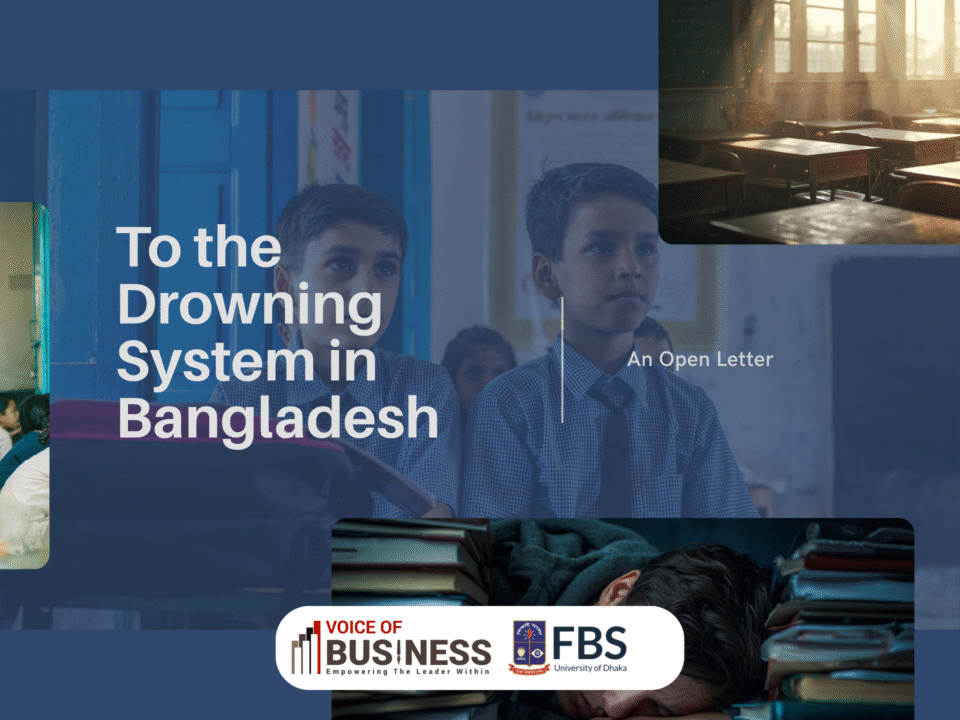Echoes of Art

Colours of Courage
June 3, 2025
Artistic Alchemy in Society: An elixir or a toxin?
June 3, 2025[ 10 June 2024 ]
“Artistic expressions reveal hidden injustices, reflecting and inspiring changes. In Bangladesh, each artwork becomes a catalyst for activism, challenging norms and promoting equality. Through art, silent whispers of discontent transform into a powerful call for justice. Together, let’s shape a more equitable future.” –
Helena took a deep breath, her eyes gleaming at the Filmfare award that she received for “Chayabashini.” The hall fell silent, captivated, expecting to hear more. With a simple “Thank you,” she ended her speech, and the room burst into applause, culminating in a standing ovation.
While crossing Mohakhali flyover, that acute back pain returned, haunting for months. To distract, she gazes at passing street lamps, lost in memories of her childhood.
[ 26 November 1986 ]
Young Helena heard a scream. Leaving her book “Motichur” on the bed, rushing to the next room, she witnessed her father slapping her mother, Rahela Banu, over a trivial matter. – a grim routine of domestic violence. Without hesitation, Helena grabbed her father’s wrist and firmly said,
“A cart with one large wheel (the husband) and one small wheel (the wife) cannot travel far; it will only circle around the same corner.” – Begum Rokeya.
The unexpected response from his young daughter left Mohsin Ahmed in shock. He stood in silence, while deep within his subconscious, regret and shame tormented him for his actions.
[ 10 June 2024 ]
She smiled with satisfaction at the impactful role of novels. That one night had changed her father’s perception of women. Over time, he continued to learn more from Helena, leading to the disappearance of domestic violence and the establishment of gender equality within the family. Helena snapped back to reality when the driver said, “Ma’am, we’re home.”
[ 17 May 1994 ]
Helena, a student of Film and Media Studies, is continuing her education while staying at her aunt’s house. As Helena was preparing for the classes, she heard her cousin Bristi crying from the next room.
Bristi and her brother Megh were watching “Meena” cartoons together while having breakfast. Their mother, Nazma Banu, served egg and butter only to Megh, explaining that he needed to grow up strong and take care of the family.
Coincidentally, the episode of “Meena” that day focused on gender equality between siblings. Upon seeing this, Helena smiled and devised a plan. She asked Nazma Banu to join them in watching the cartoon. As they watched, Nazma observed the entire episode, a tear forming in the corner of her eye, realizing the injustice done to Bristi. She called both Bristi and Megh, gave them a warm embrace, and promised to ensure fairness and equality between them.
[ 10 June 2024 ]
Alo embraced his mother in excitement, congratulating her on the Filmfare award. However, she seemed tense. “What’s wrong, Ma?” Alo asked softly. Helena mentioned her ongoing back pain in a soft tone, asking, “Did you bring the medical test reports?”
He took a moment, attempting to put a smile on his face and said, “You’re going to be just fine, Ma.” She also managed a faint smile. The room remained silent, with only the music of “Anondodhara” playing on the speaker, filling the air and masking the uncomfortable silence.
[ 16 February 1996 ]
Love blossomed in Helena’s life during her university years, yet its promise faded swiftly in the wake of betrayal; leading her to attempt suicide on multiple occasions. Throughout this devastating period her friend Ramisha, a researcher of Rabindrasangeet, offered Helena profound insights into the philosophy of life through various art forms.
“Look all around, let your heart expand,
Deem all small sorrows as trivial.”
– Rabindranath Tagore in “Anondodhara” The inherent message of Rabindrasangeet, emphasizing the joy of existence, proved particularly
impactful for Helena in overcoming her trauma.
[ 24 October 2006 ]
Professor Erik Nielsen gazed intently at the child, planning the “close-up shot.” The tale of an orphan, a victim of child labour, would undoubtedly heighten the impact of the short film he was crafting for the UN. The professor asked Helena if she had spoken to the child about his past. Helena apologized, saying the child couldn’t tell her anything. Coughing intermittently, the child described working as an assistant on a “Human Hauler” (Tempu) and sleeping on footpaths wherever he could find a spot.
Eight days elapsed as Helena dedicated herself to capturing the child’s life through her portraits. She asked several times for his name, but he could only smile in response. Later that day, during lunch, the professor said, “Thank you, Helena. I’ve captured all the shots I need for the documentary.” Helena smiled with satisfaction, yet she felt a twinge of sadness deep within her heart.
The next morning, while packing everything up, the child approached Helena and asked in a trembling voice, “Ma, won’t you come again?” Helena was surprised and replied, “Ma?” The boy didn’t reply; tears streamed silently from his eyes. For years, haunted by unfulfilled motherhood, Helena has now decided what to do. She replied softly, “No, Ma won’t come here again. But she can take her Alo with her.”
A new chapter was added to Professor Erik Nielsen’s documentary.
[ 08 April 2036 ]
Tasnim Rubi, a probationary journalist, was interviewing Nahid Parvez (Alo), a philanthropic entrepreneur, in his office.
Rubi: “Sir, despite being a successful entrepreneur, why do you invest heavily in various art forms, especially in films?”
Mr. Parvez: “I strongly believe in the power of artistic expression. My mother, a filmmaker, was the assistant director of ‘Sparkling Dawn,’ a documentary that globally influenced the UN’s convention against child labor. Along with its global impact, it significantly reduced child labour rates in Bangladesh as well. She also tackled societal challenges through films such as ‘Chayabashini,’ which played a pivotal role in the rehabilitation of drug addicts.
Ruby smiled with gratitude, saying, “I was one of them; her film guided me out of the shadows.”
Author: Farhan Labib




